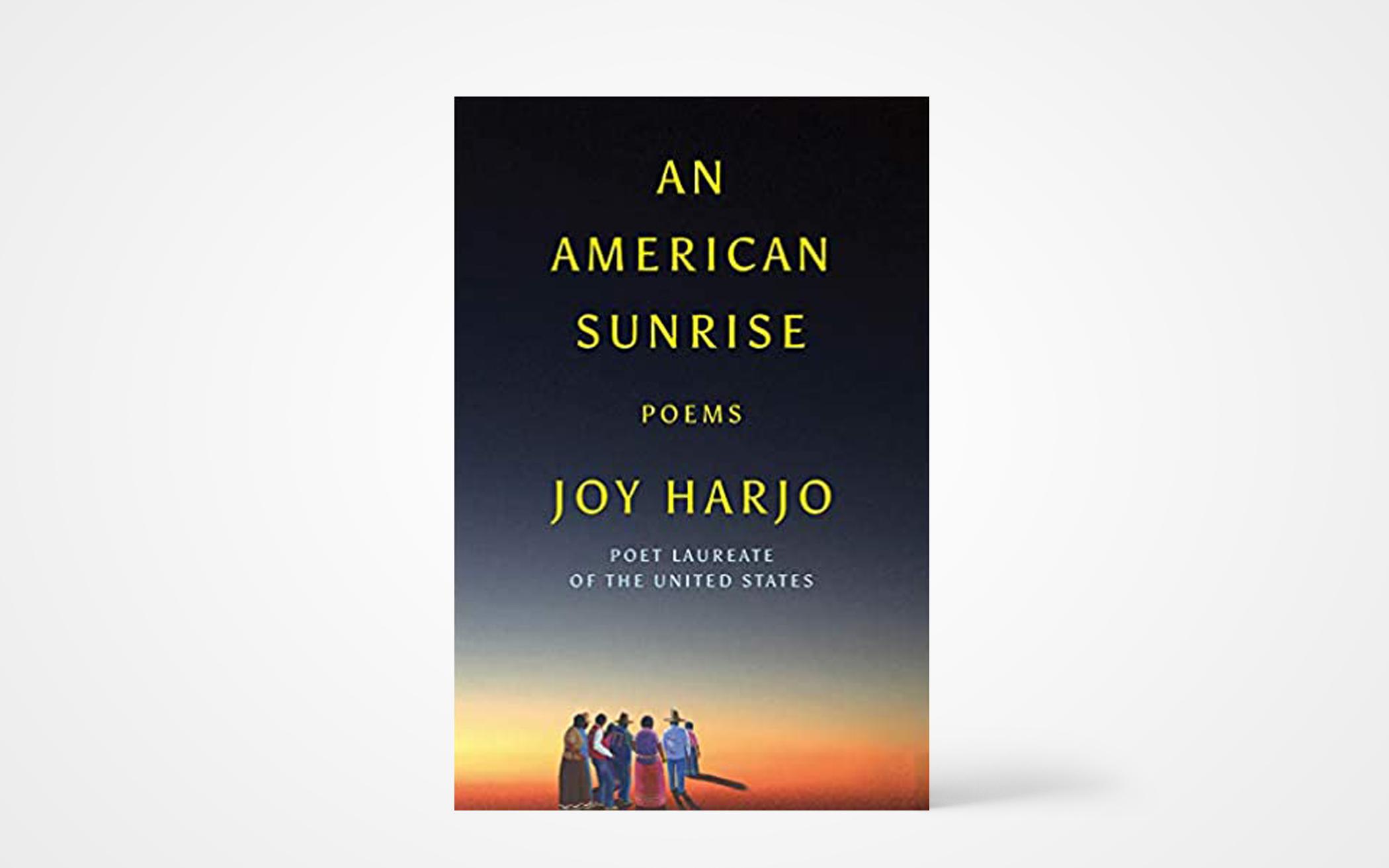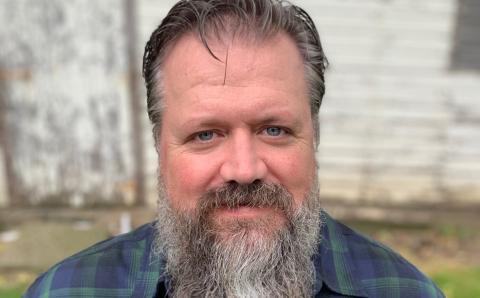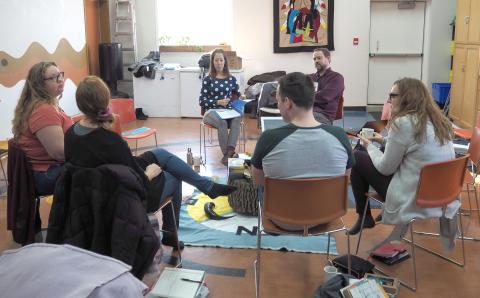Joy Harjo’s latest collection of poetry, An American Sunrise, answers painful history with defiance, memory, and grace. Harjo, a member of the Muscogee Nation, is the first Native American to hold the position of United States Poet Laureate. In An American Sunrise, she portrays the transgenerational trauma of the Indian Removal Act alongside the resilience of Native people and the natural world.
In one of the book’s longest poems, “Exile of Memory,” Harjo describes the experience of returning to her Muscogee (or Mvskoke) ancestors’ traditional lands in Alabama, where her grandparents lived before being forced westward by the U.S. government. For Harjo and her relatives, this violence doesn’t remain in the past. Its memory is kept alive by the “angry ghosts of history,” and its effects appear in the present tense: “We are still in mourning,” “Grief is killing us.” This slippage of past and present appears throughout the collection. Our ancestors, Harjo suggests, are as close by as our neighbors and just as deserving of our attention.
One of the book’s epigraphs, a quote from Muscogee activist Jean Chaudhuri, insists that “When you act and speak you must think of all your relatives, known and unknown.” Harjo follows this advice religiously, describing the effects of violence on victims of war, contemporary Muscogee youth, and her own mother’s aging body. But she also claims, “Our ancestors are not only human ancestors,” and her poems resound with empathy for the land and its creatures. In “Redbird Love,” she chronicles the life of a young bird, an “urgent chirper.” In “Honoring,” she asks, “Who sings to the plants / That are grown for our plates?”
Harjo also believes in—or at least hopes for—a world in which injustice is eventually set right, in which night gives way to the beauty of sunrise. She has harsh words for those in power who use law and order to enact violence. But their time is short. “The destroyers will destroy themselves,” Harjo writes. “The final verse is always the trees.”
Harjo’s hope for justice rests in humanity and nature, not divinity. In fact, White Christians are often the villains in her stories, “immigrants walking into our homes with their guns (and) Bibles.” Christian teaching, imposed forcibly on Native communities by white settlers, was outlawed by Muscogee leaders “because it divided the people.” But the poem doesn’t end there: “Mvskoke ways are to make relatives. / We made a relative of Jesus, gave him a Mvskoke name.” Harjo’s book is a challenge for Christians to confront the violence perpetrated by our ancestors, but it’s also an invitation to join Harjo in her respect for creation: “Let’s honor the maker. / Let’s honor what’s made.”
Interspersed with Harjo’s poems are several short prose passages describing the history of white settlers’ oppression of Native Americans as well as the history of Harjo’s own family. In one of these passages, Harjo notes that practicing Native culture—stories, art, songs—was essentially illegal until the Indian Religious Freedom Act was passed in 1978. An American Sunrise laments those lost centuries and calls us to listen to what our Native relatives are saying and singing now. (W.W. Norton)
About the Author
Josh Parks is a freelance writer and editor. He graduated from Calvin University in 2018 and has an MA in medieval studies from Western Michigan University. He attends Church of the Servant CRC in Grand Rapids, Mich.






